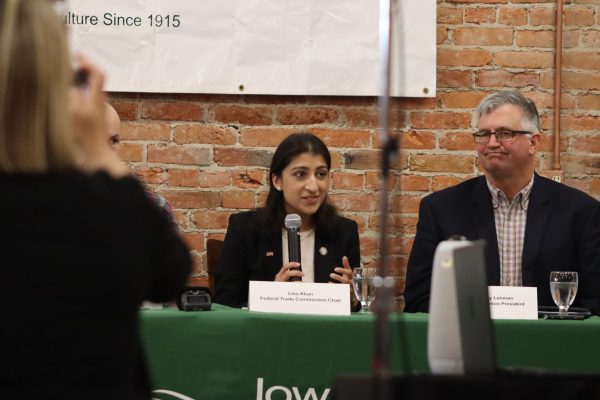Margaret Sloss Women’s Center welcomes all
September 18, 2012
Before classes at Iowa State started, many students were stumbling around campus looking for their classrooms in large buildings stereotypical of a university. Many freshmen passed a tiny house, the Margaret Sloss Women’s Center, and overlooked the building, dismissing it as a type of museum or a preserved, untouchable structure. However, the Sloss House is anything but untouchable or unwelcoming. The Sloss House is a sanctuary for students of all genders and walks of life.
According to the ISU website, the house was named after Margaret Sloss, the first woman who graduated from Iowa State with a degree in veterinary medicine. The center was created as a space for women to go for help of any kind.
“The Margaret Sloss Women’s Center promotes equality and social change on the Iowa State University campus for women students, staff, and faculty,” said Chris Fowler, Sloss House coordinator. “Through a feminist lens, the center advocates for individuals and groups; provides support, referrals, community and programming; and maintains a safe space in the Sloss House.”
Som Mongtin, interim assistant director of Sloss House, encourages students to utilize the space for its amenities.
“A majority of our students come here to relax; [they] come use the kitchen and the space. We have a seating area, we have a TV, and groups can reserve the space,” Mongtin said.
The Sloss House offers a well-equipped kitchen, living room, sun room, dining room and computer lab. The computer lab offers free printing to students as long as paper is provided.
Sloss House hosts events throughout the year to promote awareness about issues like gender equality and violence against women.
“We are having experts come in once a month and have discussions on particular topics,” Fowler said. “This Wednesday over the noon hour, Carrie Jacobs from ISU Police is talking about safety on campus. September is campus safety awareness month.”
Mongtin offers her help to any women who feel they need help and don’t know where to go.
“If a student comes in, they can come talk to me about any issues, whether it be a roommate conflict, relationship violence, sexual assault or just regular stress…” Mongtin said. “I’m not a counselor, but I can be here for them; I can lend my ear.”
Mongtin also encourages men to attend events and use the space as well.
“We’re not judgmental; if we don’t know all the answers, we will find them for you and connect you to the right people on campus,” Mongtin said.
















